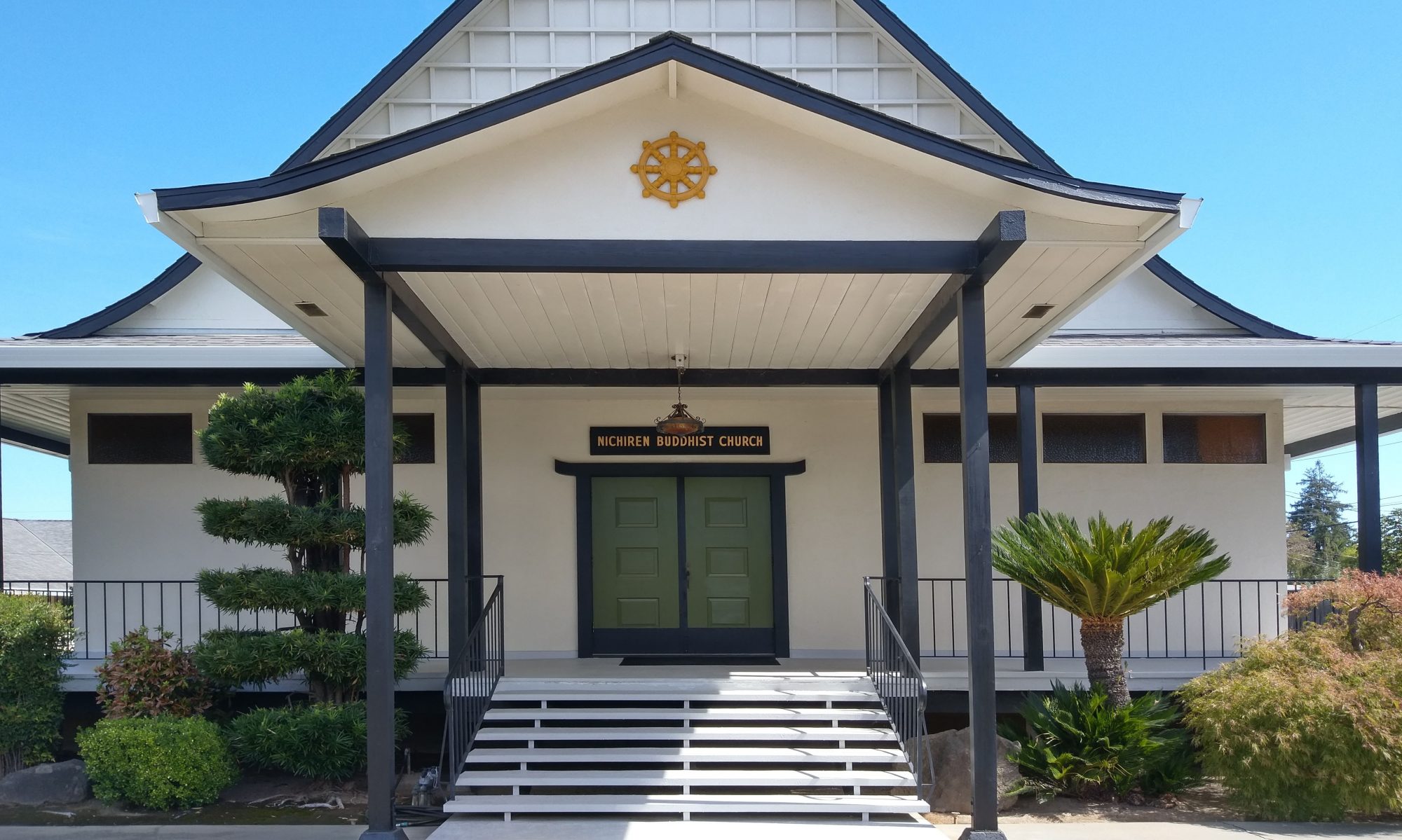In some of the previous newsletters, I have talked about my experience as the head minister of the San Francisco Nichiren Buddhist Church. When I became the head minister in 1976, the church itself was just an apartment room. Aside from the monthly services I held there, I also prepared the church newsletter and performed other daily tasks for the church. However, these tasks could only keep me busy for so long and I was always searching for other activities that I could do. I really wanted to go to the local Adult School to learn English but I did not have money to take the bus and gave up on this idea. I also spent some time reading the few books that I had brought from Japan and was left trying to find more books in the church, but could not find too many. I also tried to spend my days chanting the sutra, however, the neighbors told me that I was too loud, and I had to find other ways to continue my daily practice without disturbing my neighbors.
As a result, I decided that I would hand deliver my handwritten church newsletter along with the Nichiren News by doing “angya” (walking while also beating my handheld taiko and chanting the odaimoku). I walked from Sunset District all the way to Downtown San Francisco, passing through Haight-Ashbury District, the birthplace and center of the hippie community. During one of my trips, I remember passing through the Haight-Ashbury District only to be surrounded by several hippies. At the time, I did not understand or speak any English, so I was very confused and slightly troubled by this situation. Therefore in that moment, I decided to escape that situation by handing them the Nichiren News and quickly walking away.
During one of my other trips, I was approached by a woman at a stop light. I remember her pointing to the sky and yelling, “There is only one God!” She proceeded to spit at my feet and quickly ran away. I felt several different types of emotions — I was angry, shocked, and very frustrated that I could not say anything back to her. However, I still had newsletters to deliver and could not just stop my angya. As I proceeded to continue walking and chanting the odaimoku, I was able to calm down and remembered the words of the Never Disparaging Bodhisattva (Jp. Jofukyo Bosatsu) in Chapter 20 of the Lotus Sutra. The Bodhisattva states to those who scrutinize the Lotus Sutra, “I respect you and I do not disparage you. The reason for this is because you are all practicing the way of the Bodhisattva and will all become Buddhas.” Though there are many people living in this world right now, but there are not too many individuals who know about the Lotus Sutra and Nichiren Shu, especially in the United States. It is equivalent to the number of specks of dust and dirt that we can place on a fingernail, a common phrase in Buddhist literature to refer to the scarcity or rarity of a situation.
Unfortunately, many people in this world face a lot of different types of discrimination, one of them being related to religious beliefs. Although that woman tried to disparage or belittle me, at least through that experience, she was able to hear the odaimoku and in turn become exposed to the Lotus Sutra. Every single person has a Buddha nature and therefore a potential to reach Enlightenment and become a Buddha. One of our tasks ss Buddhists is to help people realize that they have this Buddha nature and that through practice, they can reach Enlightenment. When more and more people come to realize this, the world will become more peaceful and closer to heaven or paradise.
Ven. Kenjo Igarashi
January/February 2020
